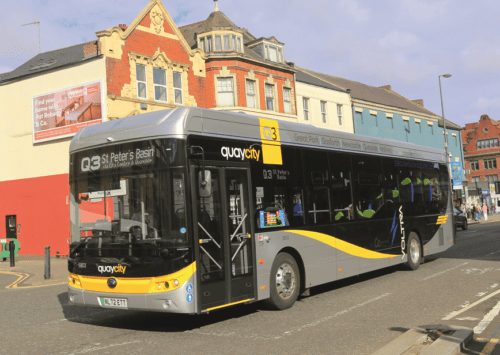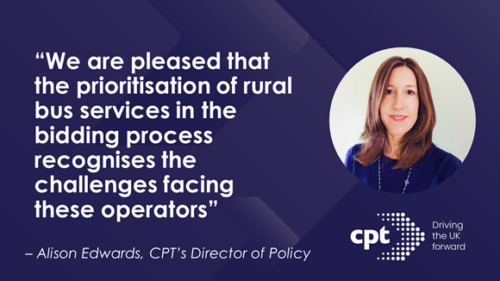
More Government funding has been announced to help decarbonise public transport and develop innovative ideas to ensure future infrastructure is low-carbon and resilient
The Transport Secretary announced on 8 September further funding of up to £129 million to help local transport authorities introduce hundreds more zero-emission buses, with a focus on remote areas where building the infrastructure needed for the buses is more expensive. To that end, the Government has prioritised the first £25 million for rural communities.
The Zero Emission Bus Regional Areas (ZEBRA) 2 scheme is now open for bids from all local authorities in England (outside London), with applications to be prioritised from those that did not receive funding in the previous funding rounds. The Transport Secretary has also announced the launch of a new research hub, backed by £10 million in funding from the Department for Transport, National Highways, HS2 Ltd, Network Rail and UK Research and Innovation (UKRI).
Newcastle University, Heriot-Watt University, University of Cambridge and University of Glasgow have been awarded the funding to establish the Net Zero Transport for a Resilient Future Hub, where they will develop innovative ideas to ensure future transport infrastructure is low-carbon and resilient.
Transport Secretary Mark Harper said: “Today’s funding for more zero-emission buses will help decarbonise public transport and grow the economy by keeping our communities connected. We have already reached our initial target of funding at least 4,000 zero-emission buses and this additional funding will improve journeys for even more passengers, reaching those in the most remote areas.
“The UK is also cementing its position as a world leader in net zero tech with this new investment into climate resilience. Our Net Zero transport hub will be a centre of academic excellence, helping us keep our transport network resilient into the future.”
Visiting the Alexander Dennis factory in Scarborough, Buses Minister Richard Holden added: “It’s been fantastic to be at Alexander Dennis and see how our £129 million investment will impact British bus manufacturing. This brings our total investment in new zero-emission buses to almost £500 million, helping to kick-start a new generation of bus manufacturing in the UK and create good, high-quality jobs from Scarborough to Falkirk.
“We’re leading the way by ensuring that Britain can take advantage of high-skill manufacturing while delivering cleaner public transport for passengers across the country.
Alexander Dennis President & Managing Director Paul Davies said: “It has been a pleasure to welcome the minister to our Scarborough factory, which is a prime example of how Government investment in zero-emission buses can support communities across the country when it benefits domestic manufacturers like ourselves. We provide thousands of skilled jobs and apprenticeship opportunities in an industry that is firmly looking ahead to a sustainable future for us all.
“Our next-generation electric buses are ready to support councils’ ZEBRA 2 bids, including the innovative Alexander Dennis Enviro100EV, which is particularly suited to efficiently provide zero-emission mobility for rural communities.
The CPT welcomed the move. Director of Policy Alison Edwards said: “We welcome the Government’s announcement of further Government funding for zero-emission buses. Buses have a huge role to play in helping the UK meet its decarbonisation goals.
“We are pleased that the prioritisation of rural bus services in the bidding process recognises the challenges facing these operators. To help tackle these, CPT has established a Rural Zero Emission Bus Taskforce, which will seek to identify practical solutions that are required for rural areas.
Research
Funding for the research hub will be used to develop new ways of modelling cities and towns, and understanding how vital structures such as bridges and rail lines can handle severe weather events such as flooding. The hub will work with local authorities and industry to identify practical opportunities to make it easier for people to travel with greater choice and less disruption.
Professor Miles Padgett, Interim Executive Chair of the Engineering and Physical Sciences Research Council, part of UKRI, said: “A well-functioning low-carbon transport infrastructure is vital to sustain communities and economies. This investment in the climate-resilient development of our transport system will keep the UK at the forefront of the green industrial revolution and accelerate the transition to a secure and prosperous green economy.”


